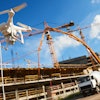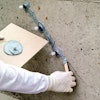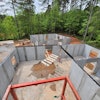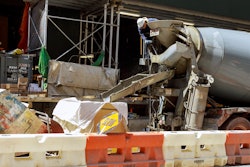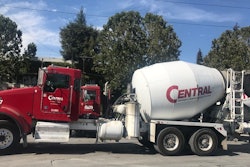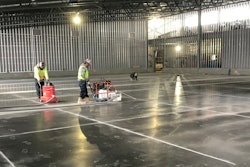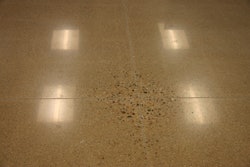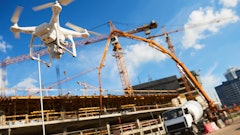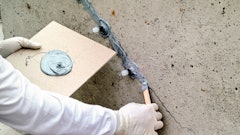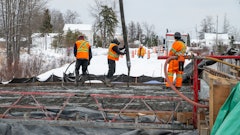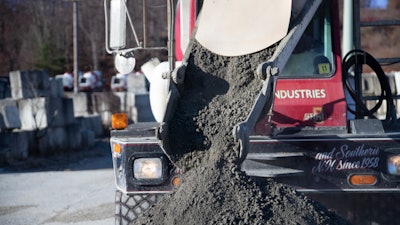
Concrete is quite literally the foundation of most of our infrastructure. However, the process of concrete production has remained relatively unchanged for decades. From creating and transporting concrete to eventually receiving leftover concrete, there are opportunities to help ready-mix producers improve efficiency and reduce material waste, thus reducing costs.
Two of the toughest challenges for ready-mix producers are the lack of automation available and the cost and hassle of returned concrete.
The Problem
The National Ready Mix Concrete Association (NRMCA) estimates 3-5% of ready-mix concrete deliveries in the U.S. are rejected at the job site for various reasons, such as not meeting specifications. Another occurrence is a project simply has leftover ready-mix concrete. The industry has a high rate of wasted material and that is costly.
 The system uses sensors installed on ready-mix trucks to collect real-time data to monitor, measure, and manage concrete properties while the concrete is in transit to the job site.GCP
The system uses sensors installed on ready-mix trucks to collect real-time data to monitor, measure, and manage concrete properties while the concrete is in transit to the job site.GCP
Solution: Embrace Automation
The VERIFI in-transit concrete management system from GCP Applied Technologies was developed to overcome these pain points. The system uses sensors installed on ready-mix trucks to collect real-time data to monitor, measure, and manage concrete properties while the concrete is in transit to the job site. The data is transmitted from on-board computers that communicate with the cloud every 15 seconds, making the data accessible on phones, tablets, and laptops.
The VERIFI system offers a new level of concrete quality control and helps increase product consistency from one truck to the next — increasing jobsite efficiency and minimizing costly project delays. Using these advanced data tools conserves materials by delivering concrete that consistently meets specifications, thereby avoiding rejected loads.
An added benefit that the VERIFI system provides is increased fuel efficiency. In ready-mix concrete delivery, fuel use is a significant source of cost. About 23% of fuel in a concrete delivery is used for high-speed drum rotations that mix the concrete. Traditionally, the truck driver has to determine the timing of rotations, using minimal information about concrete consistency or fuel efficiency. In contrast, real-time data from the VERIFI system gives the driver instructions on the optimal number and timing of rotations. Early data suggests that the number of high-speed revolutions can be reduced by 10%, representing significant cost reductions.
 GCP has developed the CLARENA RC40 additive, which makes it easy to recycle and reuse returned concrete. Instead of having to discharge returned concrete out of the drum and find some way to dispose of it, producers simply add the admixture into the drum.GCP
GCP has developed the CLARENA RC40 additive, which makes it easy to recycle and reuse returned concrete. Instead of having to discharge returned concrete out of the drum and find some way to dispose of it, producers simply add the admixture into the drum.GCP
Solution: Recycle Waste
Today, there is also an opportunity to significantly reduce concrete waste via a new patent-pending technology. GCP has developed the CLARENA RC40 additive, which makes it easy to recycle and reuse returned concrete. Instead of having to discharge returned concrete out of the drum and find some way to dispose of it, producers simply add the admixture into the drum. This converts returned, unused plastic concrete into a hardened granular state that can be reused in fresh concrete as a partial replacement for fine and coarse aggregate. This granular material can also be used as a high-quality compacted fill material for end uses such as road base.
The technology offers numerous economic as well as environmental benefits, including:
● Conserving raw materials = money savings
● Keeping reduced concrete out of landfills
The concrete industry is undergoing its own technological revolution. These new innovations free ready-mix operations from numerous constraints that have long been a way of life. These solutions are rapidly becoming an important asset across the entire concrete production process. Forward-thinking producers are realizing tremendous improvements in efficiency, accuracy, and sustainability. These three benefits reduce the cost of concrete production and enable producers to stand out in a competitive landscape.
